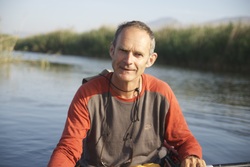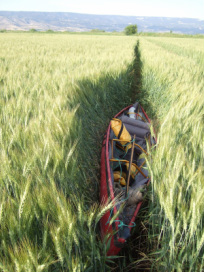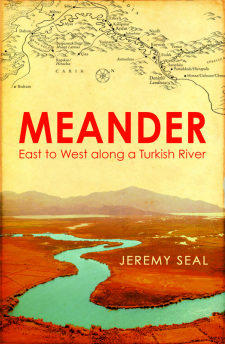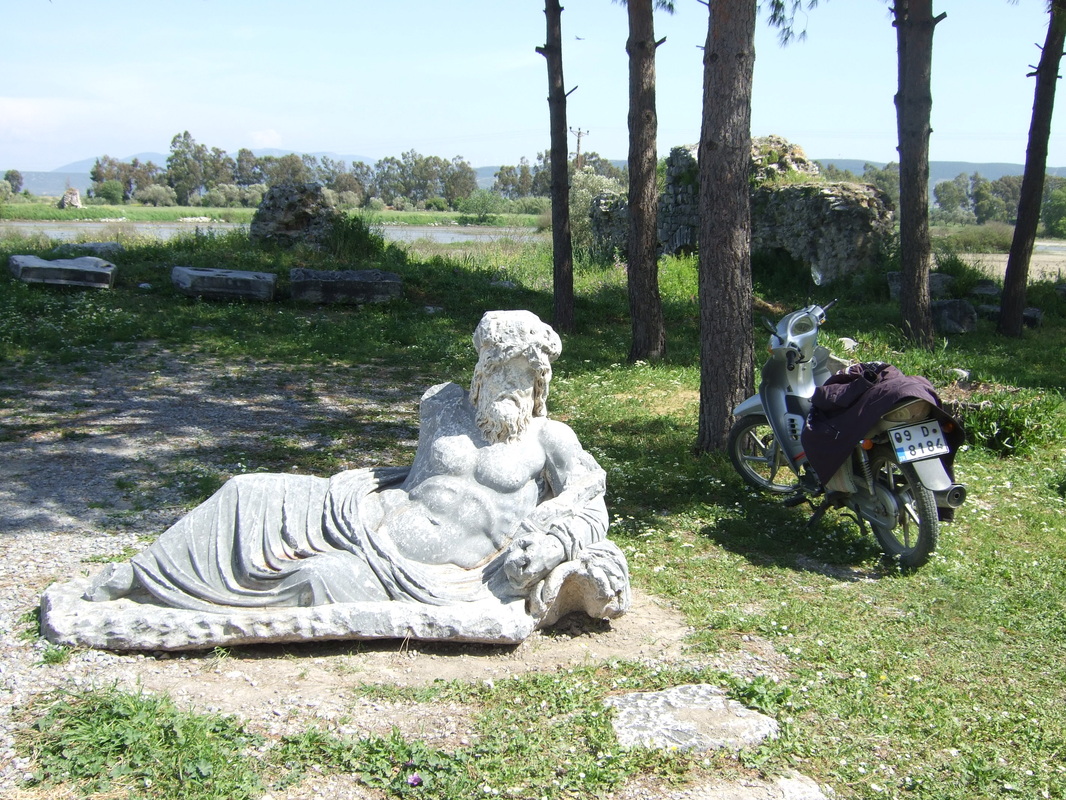Meander: East to West along a Turkish River
Winner of the British Guild of Travel Writers' Best Narrative Travel Book for 2012
Short-listed for the Dolman Prize 2013
'A delightfully discursive story from a writer of great talent. Jeremy Seal has a passion for Turkey and in this account of his journey down the River Meander, he also shows that he has an ear for a good story, a back broad enough to drag his canoe when needs be, an enthusiasm that survives the disappointments of the encroachments of the modern world, a knowledge that embraces the whole of western history and, perhaps, most important of all, a love of both verbal and physical meandering. Man and river are brilliantly matched, both content with long digressive loops and the result is a wonderfully slow, insightful, all-encompassing, all-sorts of a book that is this year's worthy winner.'
'Success
and enjoyment in this book spring from the fact that Seal is equally at
home in the past as the present... his great ability here is to convey
something of the lives, the concerns and the nature of the people of the
region'.
- Anthony Sattin, The Spectator
'The publication of Meander has confirmed my suspicion that there are few better travel writers than Jeremy Seal writing today, and none better on Turkey.'
- Geographical Magazine
'Meander is an excellent introduction to Turkish history for anyone planning a summer holiday.' - Sara Wheeler, the Guardian
'Meander takes us to a forgotten river and a land whose history and culture, significant as they are for bridging East and West, old and new, are all but neglected. It's wonderful stuff... a book that celebrates the dilemma in which Turkey finds itself, which records with sensitivity a story which is both epic and intensely personal... this is a fine observation of a landscape and its people and of a country whose efforts to define itself have been as circuitous as the river itself.' - Jon Berry, www.caughtbytheriver.com
'A highly enjoyable and fascinating account of a country caught between Europe and Asia'. - welovethisbook.com
Click on these publications to read the reviews in the Guardian, Kirkus Review, www.longitudebooks.com, www.caughtbytheriver.com and www.welovethisbook.com. Click here to read an extract from Meander in the Daily Telegraph.

In the spring of 2008 I took a folding canoe and a small rucksack to Turkey. In the lonely hills above the hinterland town of Dinar I made my way to the source of the Menderes – the classical Meander - River. My plan was to be the first person to make a full descent of this fabled river.
I’ve always been one for meandering, though I had never dreamed that I might one day do so down the very river where the word was born. My firm guess was that the river had never existed, like the mythical Styx, or that it had long since been mislaid, like the Rubicon. Perhaps this was why the patently thin disguise of the Turkish name had fooled me, and others like me, for so long. From that moment when I belatedly recognised its existence, however, I knew that I would travel the Meander’s windings to the sea.
For this was also a river of real historical resonance; its broad valley ran a passage deep into the mountains of Anatolia to connect the earliest Aegean civilisations – Minoans and Myceneans – with the Assyrians and Hittites of Mesopotamia. Miletus, the city at the river’s mouth, has been credited as the birthplace back in the 6th century BC of western rational thought; Celaenae, latterly Apamea, the city at the river’s source, guarded the great pass on the road to the East and became fabulously rich on the proceeds. The Persian armies of Xerxes came this way en route to Marathon and Thermopylae; so did those of Xenophon and Alexander on their way to the east. It was in the Meander’s tributary valleys that the earliest Christian communities, fostered by St Paul, put down their roots. Across these perpetual marchlands the armies of Byzantine Emperors, Crusader Kings and Turkish Sultans skirmished and fought; here too that the Greek armies which invaded Turkey after the Great War were finally defeated by Ataturk’s peasant conscripts in 1922. It was along this ruin-strewn river valley that a historical epic, the Fight for Supremacy between East and West, had played out.
The Meander Valley was more, of course, than just a battleground. It had long been the richest agricultural lands in all Turkey: the opium that Coleridge, De Quincey and the like consumed came from the upper valley while the lower reaches were famously rich in ‘Smyrna figs’, in grapes, liquorice and oranges. The region was home, finally, to ordinary Turks whose stories I also wished to hear.
Suffice it to say that the journey did not turn out to be quite the meander I had imagined. Meander is published by Chatto in the UK and by Bloomsbury in the US. Paperback editions are due from Vintage (UK) and Bloomsbury (US) in the summer.
Click here for a recent travel article on the Bafa Lake section of the Meander in the Guardian.
I’ve always been one for meandering, though I had never dreamed that I might one day do so down the very river where the word was born. My firm guess was that the river had never existed, like the mythical Styx, or that it had long since been mislaid, like the Rubicon. Perhaps this was why the patently thin disguise of the Turkish name had fooled me, and others like me, for so long. From that moment when I belatedly recognised its existence, however, I knew that I would travel the Meander’s windings to the sea.
For this was also a river of real historical resonance; its broad valley ran a passage deep into the mountains of Anatolia to connect the earliest Aegean civilisations – Minoans and Myceneans – with the Assyrians and Hittites of Mesopotamia. Miletus, the city at the river’s mouth, has been credited as the birthplace back in the 6th century BC of western rational thought; Celaenae, latterly Apamea, the city at the river’s source, guarded the great pass on the road to the East and became fabulously rich on the proceeds. The Persian armies of Xerxes came this way en route to Marathon and Thermopylae; so did those of Xenophon and Alexander on their way to the east. It was in the Meander’s tributary valleys that the earliest Christian communities, fostered by St Paul, put down their roots. Across these perpetual marchlands the armies of Byzantine Emperors, Crusader Kings and Turkish Sultans skirmished and fought; here too that the Greek armies which invaded Turkey after the Great War were finally defeated by Ataturk’s peasant conscripts in 1922. It was along this ruin-strewn river valley that a historical epic, the Fight for Supremacy between East and West, had played out.
The Meander Valley was more, of course, than just a battleground. It had long been the richest agricultural lands in all Turkey: the opium that Coleridge, De Quincey and the like consumed came from the upper valley while the lower reaches were famously rich in ‘Smyrna figs’, in grapes, liquorice and oranges. The region was home, finally, to ordinary Turks whose stories I also wished to hear.
Suffice it to say that the journey did not turn out to be quite the meander I had imagined. Meander is published by Chatto in the UK and by Bloomsbury in the US. Paperback editions are due from Vintage (UK) and Bloomsbury (US) in the summer.
Click here for a recent travel article on the Bafa Lake section of the Meander in the Guardian.



